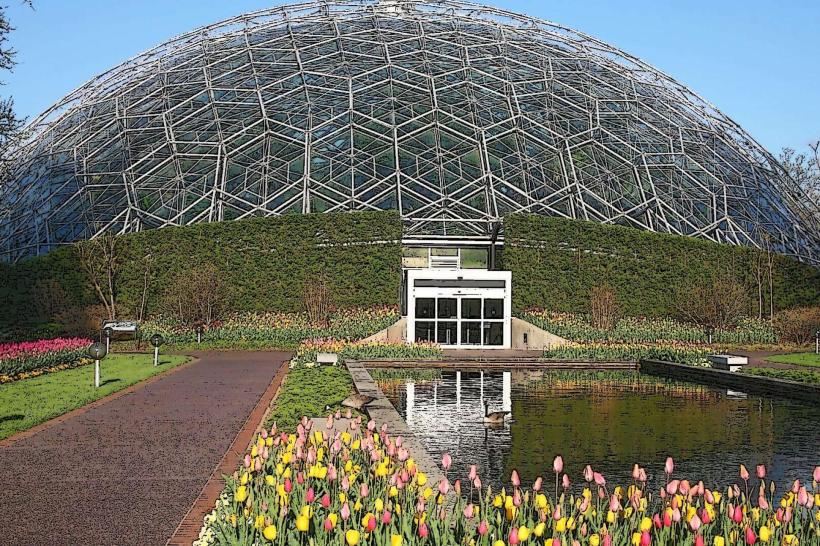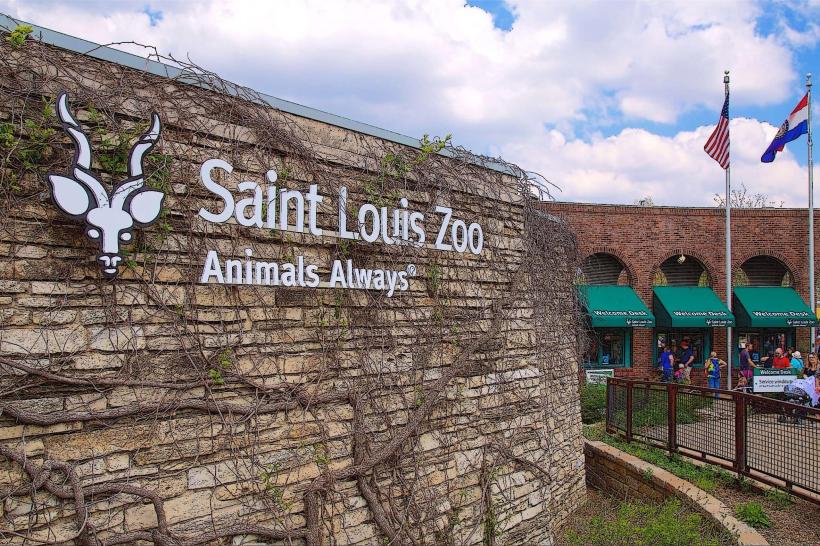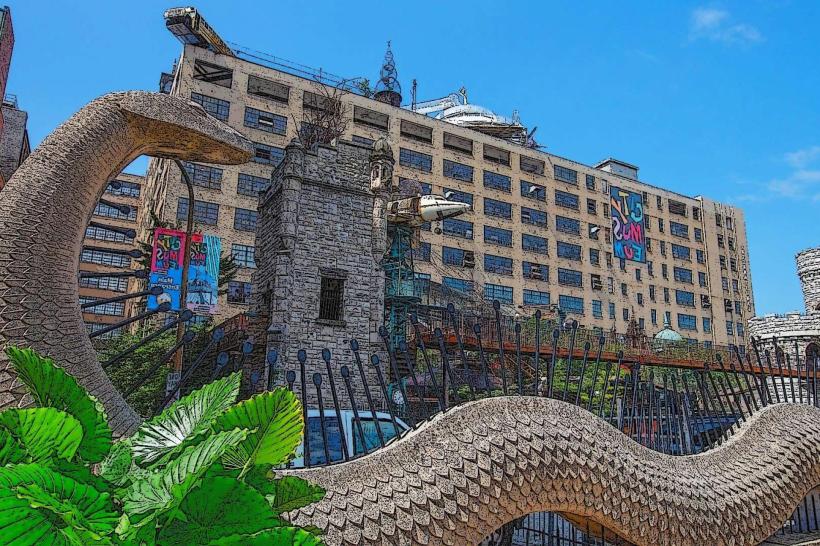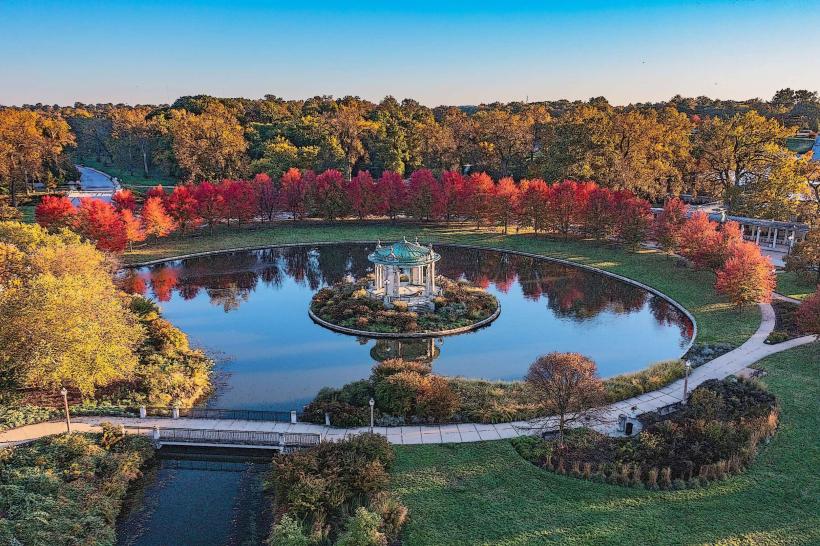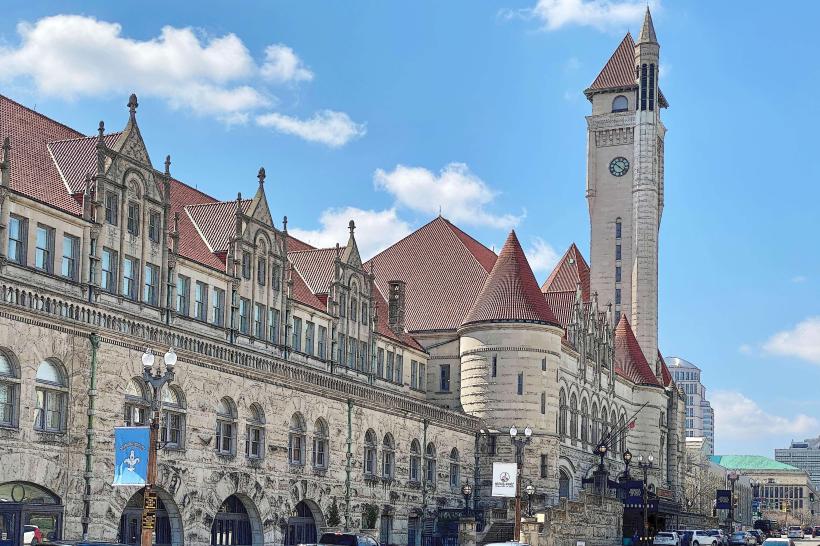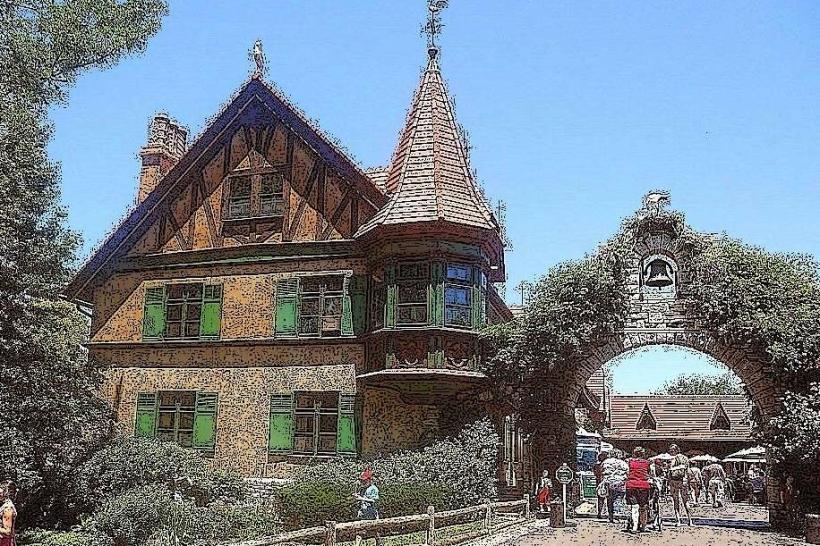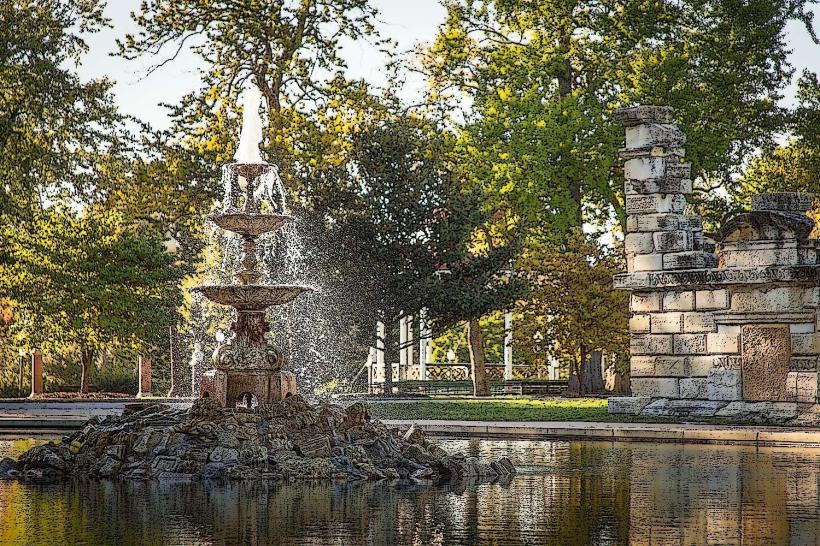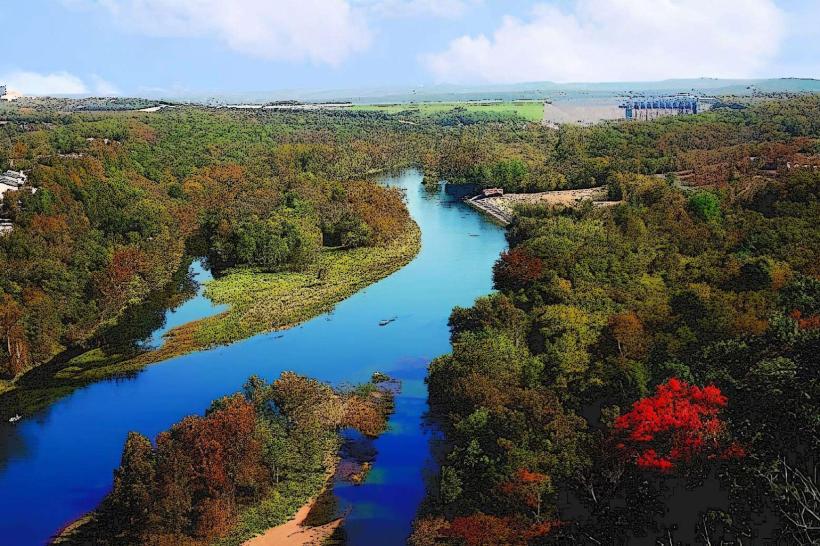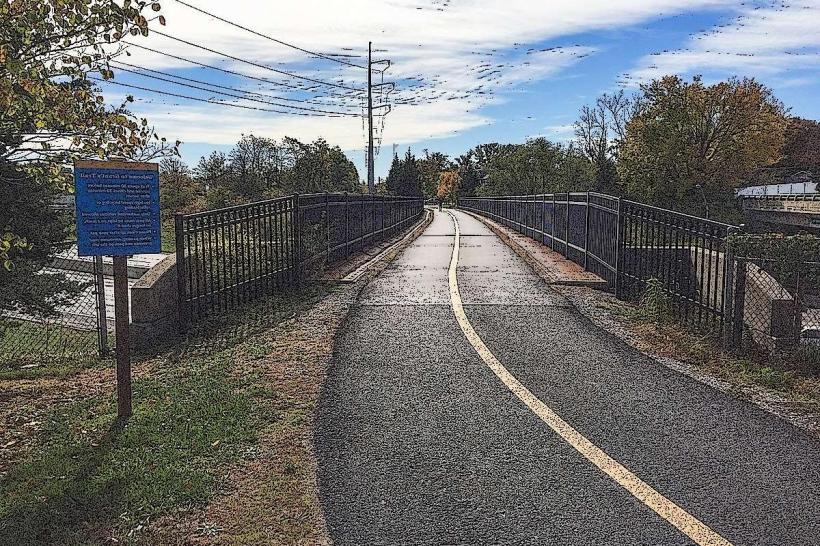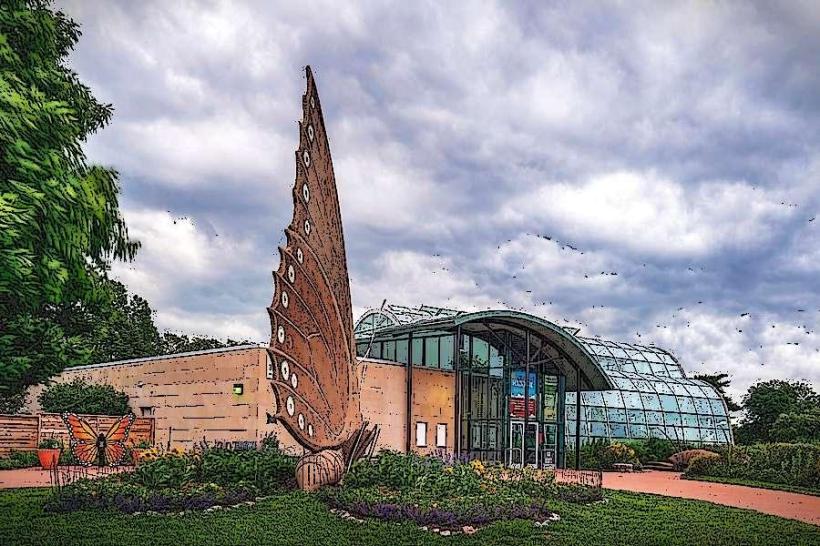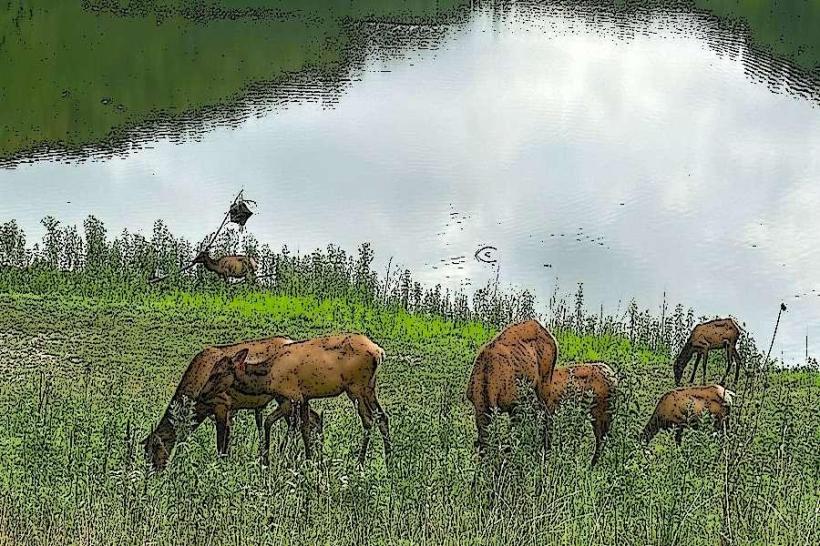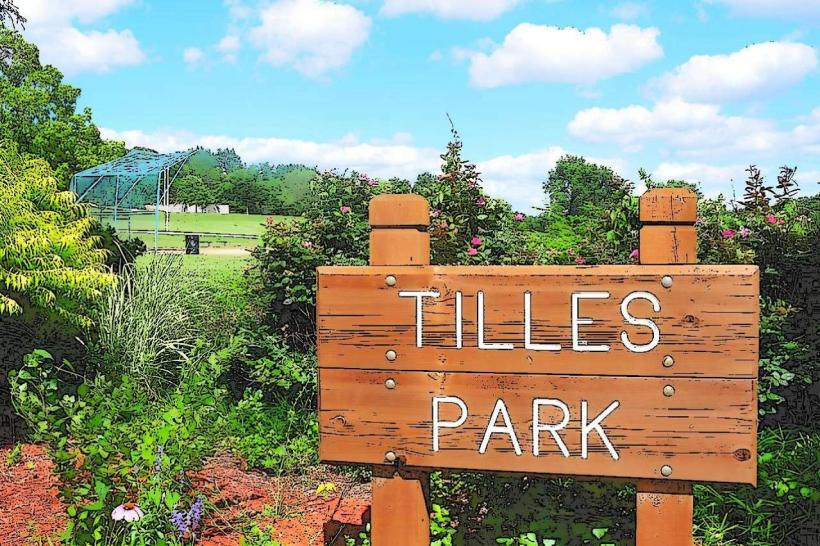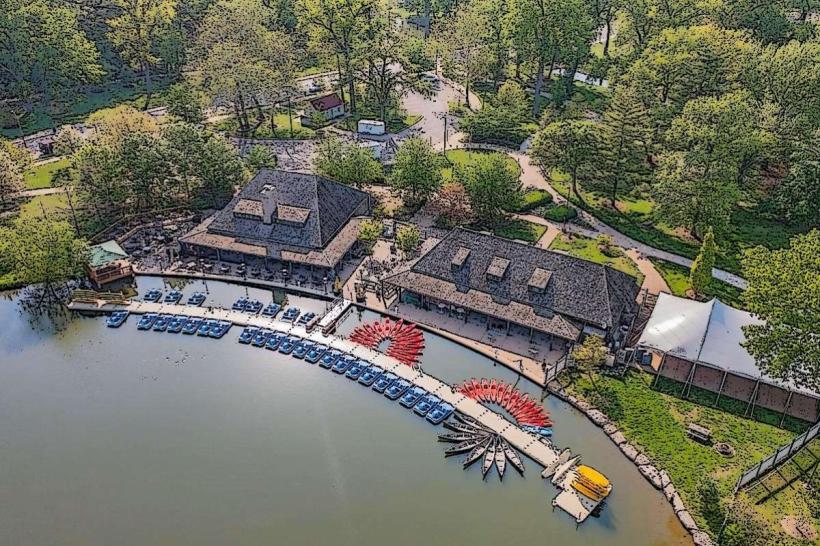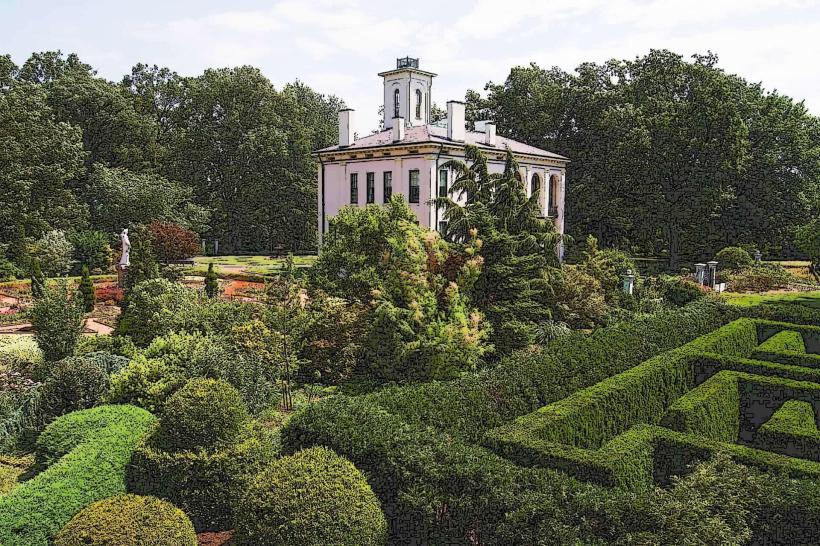Information
Landmark: Ha Ha Tonka State ParkCity: St Louis
Country: USA Missouri
Continent: North America
Ha Ha Tonka State Park, St Louis, USA Missouri, North America
Overview
Ha Ha Tonka State Park, just outside Camdenton in the heart of Missouri, sprawls across 3,700 acres of rugged cliffs, twisting caves, and the weathered stone ruins of a once-grand mansion, in addition set along the Niangua Arm of the Lake of the Ozarks, the park boasts striking karst landscapes-deep sinkholes, shadowy caves, natural bridges, clear springs, and sheer cliffs-paired with trails, picnic spots, and other amenities, drawing both outdoor adventurers and history lovers.At the heart of Ha Ha Tonka State Park stands the stone mansion called Ha Ha Tonka Castle, begun in 1905 by Kansas City businessman Robert McClure Snyder Sr, who dreamed of a grand European-style fortress; he died in a car crash the following year, leaving the work unfinished, also his sons wrapped up the project, turning the castle into a private retreat where candlelight flickered in the great hall, and later into a bustling hotel.A fire tore through the castle in 1942, leaving little more than icy, gray stone ruins for visitors to witness today, after that the ruins still hold a quiet grandeur; crumbling towers, worn stone walls, graceful arches, and steep staircases give visitors a fleeting glimpse of early 20th‑century architecture and the bold ambition behind it.Today, the castle grounds and nearby paths draw crowds, standing as a striking piece of history against the park’s sweep of green hills and rustling trees, likewise ha Ha Tonka State Park stands out for its striking karst landscape, where rain and time have worn away limestone to reveal caves, deep sinkholes, clear springs, and graceful natural bridges.One of the park’s standout sights is Ha Ha Tonka Spring, a massive, clear-blue source that pours over 48 million gallons of cool water each day into the Lake of the Ozarks, also you can reach the spring by hiking the winding trails, where the quiet scenery unfolds in the shimmer of sunlight on clear water.Natural Bridge is a striking limestone arch, about 70 feet across and rising 100 feet high, that once welcomed visitors as the grand gateway to the castle grounds, as a result this rare geological formation draws visitors in with its sheer size and the rugged beauty of its sunlit cliffs.The Colosseum is a massive sinkhole, stretching roughly 500 feet long and 300 feet wide, its yawning gap created when the roof of a hidden cavern gave way, meanwhile towering vertical walls and sheer scale turn it into a natural amphitheater, where sound echoes like a sharp clap against stone.All through the park, you’ll find pockets of smaller caves and sinkholes-cool, shadowy hollows that break up the landscape and make its geology all the more intriguing to explore, and rugged cliffs rise above steep bluffs and wooded ridges, while winding river valleys cut through below, forming a patchwork of habitats for white-tailed deer, wild turkeys, darting songbirds, and native fish glinting in the shallows.Ha Ha Tonka State Park boasts over 15 miles of carefully kept trails for everyone-from a leisurely stroller to a seasoned backpacker, subsequently one favorite, the 0.4‑mile Castle Trail, winds straight to the crumbling stone ruins, where the lake gleams below and the hills roll out to the horizon.Spring Trail, a 1.4-mile loop around Ha Ha Tonka Spring, climbs a steep staircase of 316 steps to reach sweeping views by the vintage stone castle and the natural bridge, and colosseum Trail (0.6-mile loop) winds past a natural bridge and the massive sinkhole known as The Colosseum, with signs along the way that share its geology and history, like how ancient waters carved the rock.Turkey Pen Hollow Trail stretches 6.5 miles, winding through thick forest and over jagged rock, offering the park’s longest and most rugged backcountry route-perfect for a long hike or an overnight pack trip, simultaneously several shorter trails branch off to link different points of interest, so you can tailor your hike to your schedule and pace-whether that’s a quick twenty-minute stroll or a longer climb.With the park so close to the Lake of the Ozarks and Ha Ha Tonka Spring, there’s no shortage of ways to get on the water-seasonal kayak and paddleboard rentals let you glide through quiet, no‑wake coves where the only sound is your paddle dipping into the glassy surface, besides fishing: The park has two public boat docks where you can slip into the Lake of the Ozarks, a favorite spot for hooking bass, crappie, catfish, and more, perhaps As far as I can tell, Swimming: The park doesn’t have official swimming beaches, but the nearby lake and cool spring-fed waters offer inviting spots for a refreshing wade or a swim, what’s more ha Ha Tonka State Park offers several picnic spots perfect for families and day-trippers, including the Natural Bridge Picnic Area, tucked between the stone bridge and castle ruins, with sturdy tables, handy grills, and the scent of pine in the air.Ha Ha Tonka Lake Shelter sits right by the water, offering picnic tables where you can watch the lake shimmer and hear the soft rush of the nearby spring, meanwhile tucked away by the Post Office Picnic Shelter, you’ll find a peaceful spot with picnic tables, a slight playground where kids can laugh and climb, and a trailhead leading into the shaded bends of the Cedar Trail.The park has restrooms and a visitor center that opens during certain seasons, where you can explore exhibits on its wildlife, rugged rock formations, and rich cultural past, simultaneously the park welcomes visitors every day, opening at 7 a.m, occasionally And closing at sunset from April through October, then shifting to an 8 a.m, subsequently start in the quieter months of November to March, when the frost still clings to the grass.You can meander right into Ha Ha Tonka State Park without paying a dime, and the trail starts under a canopy of oak leaves, along with the park sits about 110 miles southwest of St. Louis, reached by Missouri Highway 54 and winding local roads near Camdenton, where oak trees line the way, in addition ha Ha Tonka State Park blends towering limestone cliffs, crumbling castle ruins, and a wide range of outdoor adventures, all tucked into the heart of Missouri’s Ozarks.You can wander through the haunting ruins of the antique castle, trek winding trails past limestone cliffs and shadowy sinkholes, paddle across calm, glassy water, and spread out a picnic beneath the shade of a maple tree, likewise in the park, towering pines meet centuries-historic stone walls, weaving nature and history into an experience you won’t forget.
Author: Tourist Landmarks
Date: 2025-10-06


